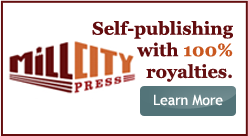A Coach's Tips on Sticking With It
by Pat Snyder
You have the idea, and maybe an outline. You’ve told all your friends about your killer idea for a book.
Now it’s morphed into cocktail party conversation.
“So how’s it coming?” everyone wants to know.
"Working on it,” you say, with the vagueness of a dieter a few weeks after New Year’s Eve.
Why is it so tough to start with a book project and follow through? Why does life always seem to pounce in discordantly “like a kitten on the keys,” as one writer puts it, and interrupt that creative flow?
Three words sum up much of the problem: Enormity, Fear and Priorities.
This is, after all, an entire book. Gulp. 300 pages, 120,000 words. And if it’s your first, it can feel like driving cross-country without a map or GPS.
And once it’s written, it will be out there, warts and all. Mrs. Schmidtly, your fifth-grade English teacher, might see it. And didn’t she say you couldn’t write?
Besides, there’s your day job, the lawn to mow, and the dog needs an emergency run to the vet.
There’s no magic one-size-fits-all formula for sticking with a book project, but a few basic practices that coaches use can go a long way to keep you on track.
Identify the higher purpose. If you’ve committed to writing a book, there must be a reason. With non-fiction, maybe you want more people to go green or eat healthier . Maybe you want to contribute to a specialized field of knowledge or avoid mistakes that slowed you down. If it’s fiction, you may have another truth you want to share through your characters, bring readers to a new understanding of how others think, or simply feel the joy of exercising your artistic muscle.
Once you’ve identified the value that’s inspired your work, use that value to pull you forward through the everyday writing and minutia that are fundamental to producing a book.
Slice the meat thin. Like a good butcher at the deli counter, slice the project into thin, manageable slices rather than unwieldy hunks that can seem overwhelming. A good place to start with non-fiction is to write a book proposal. Do this whether you’re self-publishing or are looking to attract an agent or traditional publisher. The proposal lets you ease into the writing process in a less threatening way than actually (yikes!) writing the book, and focuses you on your market, your audience, and the key information you want to convey. A proposal that includes a brief synopsis of every chapter will give you a road map and make it easier to schedule bite-size chunks of writing into your week.
Put it on the calendar. The appointments we must keep generally go on the calendar. Writing should be no exception. Otherwise, it will never have the same priority as picking up the dry cleaning or fetching the kids from soccer. Ideally, writing time should be when you’re most creative, but If you have a regular work schedule for a “day job” (or night job) that takes up most of your hours, you’ll have to work with the best of what’s available. Experiment to find your “best time.” Everyone is different. You may find that blocking out the same time period every day helps you get in a writing mood.
Find an accountability partner. It’s one thing to be accountable to yourself for writing assignments and quite another to be accountable to someone else. Identify someone - either a friend or a professional coach - who is fully committed to you and your writing and ask that person to challenge you to commit to so many words or hours/minutes a day. Then let them know if you kept the commitment. Your accountability partner should have no personal agenda for your time spent writing.
Slay the saboteur. Once you’re off and running, you may find a nasty gremlin who looks a lot like Mrs. Schmidtly, jumping up and down on your shoulder, saying you’ll never finish or nothing you write is any good. Then consider hiring a coach, who can help you see this pitiful naysayer for the weakling he actually is, and refocus on the higher purpose that brought you to this project in the first place.
Pat Snyder writes and speaks about life balance and coaches writers and artists who are stuck in their creative projects. Her first book (which she did finish) is The Dog Ate My Planner: Tales and Tips From An Overbooked Life (Two Harbors Press 2009) (link to http://TheDogAteMyPlanner.com). Find her online at www.PatSnyderOnline.com





